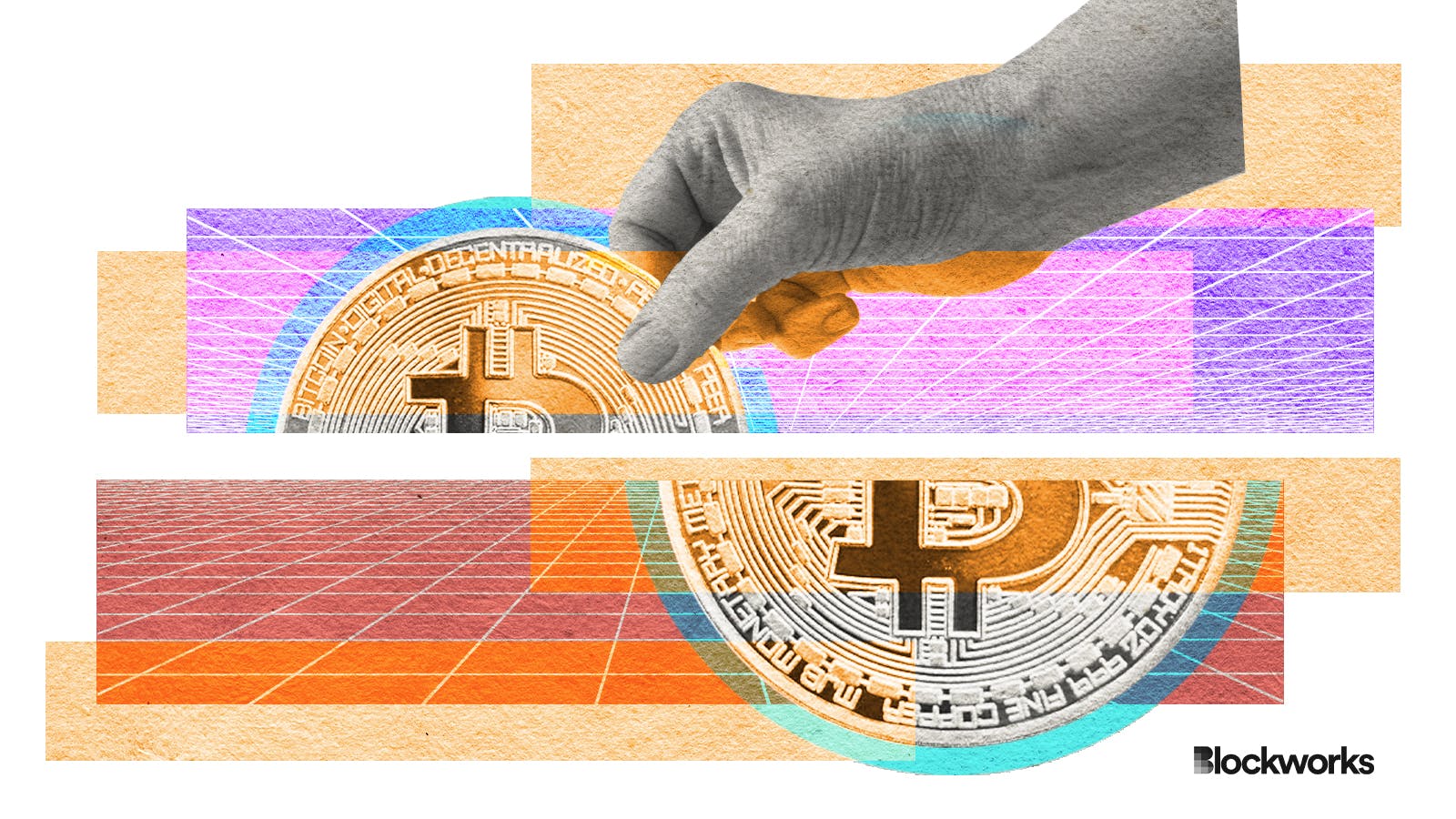The Bitcoin Renaissance is here — but it’s definitely not your father’s Bitcoin
What if the fight that started for ungovernable money has become something much bigger?

Artwork by Crystal Le
For the first time in a long time, Bitcoin is riding the zeitgeist and capturing attention beyond those who advocate for hard money. Many of those who dismissed Bitcoin as “old tech” are starting taking a serious second look, as the genesis chain pivots to decidedly cool again.
While spot ETFs and price action might be dominating your feed, there is a far more interesting debate raging over the future of the chain itself.
There have been many attempts to make big changes to Bitcoin over the years, but as inferior ideas have faded, Bitcoin stubbornly remained Bitcoin. And why not? The world’s largest decentralized and most secure network operates as intended, with elegant design and a brand that towers above the rest of the blockchain industry. Legal tender, the support of presidents and BlackRock ETFs; while I believe in the potential of Web3, no one has anything like that in their back pocket.
But when does staying the course morph into stagnation? At what point do we keep our northern star so firmly fixed, that we become too rigid?
Bitcoin was born out of a strong desire to reinvent a broken system, rebellion runs deep in the cultural roots. If Bitcoin can meaningfully disrupt the traditional financial system, surely it should be able to handle a little disruption from within?
Enter Casey Rodarmor. Rodarmor jumped into the conversation in late 2022 with Ordinals, and, boy, did he upset a lot of people. In simplest terms, he found a workaround to allow NFTs, or really any data, to be stored directly on the Bitcoin blockchain. He handed people the ball, and they ran. Iterations and inspired developments like BRC20s set off a wave of activity on bitcoin not seen before. The masses came to bitcoin, and Bitcoin wasn’t exactly ready. Congestion hit hard, spiraling fees and delaying transactions for days.
For the first time in a long time, Bitcoin blockspace was in demand.
Factional debates over Ordinals have been outright war-like since, while an entirely new industry has sprung up Bitcoin. Over 55 million inscriptions have been created, generating a whopping $230 million in transaction fees; a huge windfall for bitcoin miners, who suffered huge margin compression during the bear market.
But it’s not just miners. Sotherbys recently auctioned over a $1 million worth of Ordinals and rare sats, while industry giants like Binance, OKX and Magic Eden have all heavily leaned in. Even Phantom, the Solana wallet of choice, has added support for Taproot and Segwit. The most agile VCs are never far behind this kind of action, like Outlier Ventures, who just started their first dedicated Bitcoin Base Camp (yes, I’m part of the program sleuths). Bitcoin is a hot topic now, which makes it considerably easier for startups to raise funds. Any of this would have been unthinkable just 12 months ago.
Read more from our opinion section: DeFi is Bitcoin’s missing ingredient
While this would sound great to most people, it doesn’t alway sit very well with seasoned Bitcoiners — and for good reason. OGs have seen the crypto markets pump and dump countless times, and on many empty promises — it hardens people. It’s easy to see then why you might systematically eschew anything trend driven: Congesting the network only serves to add salt to that wound. There’s a cynical phrase in the industry often repeated, “But this time, it’s different.”
I’m not going to expend energy trying to defend any particular piece of art inscribed to the Bitcoin blockchain, or any use of the chain for that matter: It’s open source and dictated by the market.
What I do find particularly interesting is the extension of ownership and immutability from money to just about anything. People have the right to own. Fun things and new tools have helped attract a lot of unlikely suspects to Bitcoin, who not only adopt it, but carry the message further. Onboarding the next eight billion people? We might need some help.
Bitcoin has come a long way since its white paper: It’s become so much more than “a peer-to-peer electronic cash system.” It’s a living, breathing, digital apex predator that has far surpassed anyone’s expectations. Satoshi’s 2008 white paper instigated an unprecedented global rally for monetary independence; but what if the fight that started for ungovernable money has become something much bigger?
Maybe one day Bitcoin will also become ground zero for ungovernable data, or maybe just, entirely ungovernable.
Get the news in your inbox. Explore Blockworks newsletters:
- The Breakdown: Decoding crypto and the markets. Daily.
- 0xResearch: Alpha in your inbox. Think like an analyst.






